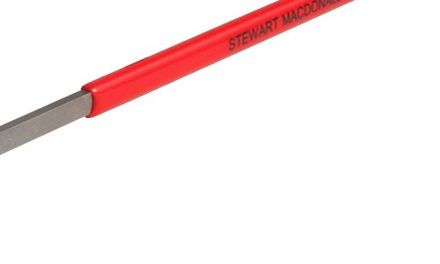Technology has ALWAYS changed songwriting. The limits of each medium have forced artists to make compromises since the beginning of audio recording history. Vinyl records had limitations that mastering engineers understood – the innermost tracks on a record had to be light on bass frequencies to prevent the needle from jumping out of the groove. You could only cram so many minutes on each side of a record. And so on.
Modern technology has created some interesting changes in the way we write and record music, and I don’t see this discussed enough. So here’s my take. This is based on personal observation, not any kind of actual real research, so keep that in mind. Onward.
Autotune Killed Vocal Vibrato for Some
Have you noticed that some singers don’t sing with vibrato? Some do it because it’s a stylistic choice. Some do it because they are emulating their heroes. Some do it because they can’t sing well. But early versions of Autotune struggled with vocal vibrato. So it became easier to pitch-correct notes sung with less or no vibrato. This had an influence on many genres. Autotune is not solely responsible for everyone sounding like Green Day – but it is a factor.
The Loudness War Killed Digital Reverb for Some
Digital reverb was invented in the 80’s and it’s all over the music of the era. Lots and lots of reverb. Drums that sounded like bombs going off. Singers who sounded like they were singing in a huge empty building. People overdid it. In the 90’s reverb was fading, while at the same time the Loudness War was ramping up. Emphasis was made on getting mixes to be as loud as possible, at the expense of dynamic range. But when you crank up the compression and crank every track, one of the first things that gives you away is the reverb. Reverb doesn’t like to be compressed. It doesn’t sound right. The combination of people being sick of reverb and the Loudness War killed digital reverb in a lot of cases.
The Loudness War and Compressed Audio Formats Killed Fidelity
As I write this, the new Beck album is out. I dig that track “No Distractions.” It’s cool. I also like the track “I’m So Free.” But if I take “I’m So Free” and crank it up loud, it sounds like a cement mixer on some parts. It’s unlistenable. There’s no dynamic range. It sucks. Unfortunately that’s a lot of modern music. If you make a great sounding album, don’t worry – it’ll get clobbered in the mastering process and sound like dog shit at high volume levels. And today’s young listeners are used to it and don’t know any better. And if you DO put out something with dynamic range, your track will be much softer than other commercial tracks and people will bitch and complain about it. The good news is that you can now record in your bedroom with fidelity that previous required a million dollar studio. The bad news is no one wants to hear it until you’ve compressed the shit out of it and made it sound like crap at high volumes. By the way, there’s a good chance this is permanent – it’s possible recorded popular music will always sound bad, from now on.
Home Studios Can Now Rival Pro Studios
This one might seem obvious to anyone familiar with Pro Tools or Logic, but a lot of albums are now being made on laptops in bedrooms, and often you can’t tell the difference between those and the albums made in pro studios.
The Playing Field Is Now Level
The Internet has democratized music. A lot of old farts love to talk about how bad all of this is and how these kids today are making crap music and no one will ever be able to make Dark Side of the Moon again. Bullshit. While the old farts are crying about days gone by, the young folks are taking advantage of the new music biz. Things have changed. But I suspect if you took some of today’s young artists and offered them the old system instead of the new one, they’d laugh in your face. For every Black Sabbath that got a record deal and toured there were tons of bands who never saw the inside of a studio because they couldn’t afford it, never put out a record because they couldn’t afford it, never distributed their music and marketed it because they couldn’t afford it… yeah, no thanks.





